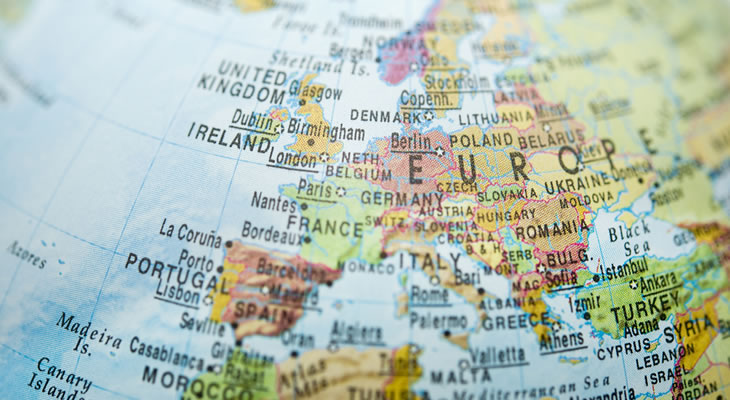Pound to Euro Exchange Rate Struggles to Hold Ground as Euro Gains
Despite underwhelming ecostats holding back both the Pound (GBP) and the Euro (EUR) last week, the Pound Sterling to Euro (GBP/EUR) exchange rate ultimately ended the week lower, and there may not be much news to support a potential Pound recovery this week.
After opening last week at the level of 1.1280, GBP/EUR fluctuated throughout the week between highs of 1.1332 and lows of 1.1226. Ultimately though, GBP/EUR closed the week near its worst levels, at 1.1232.
Since markets opened this morning, GBP/EUR has already touched on a fresh low of 1.1221 – the worst level for the pair since the first half of January.
The Euro has seen stronger demand since the end of last week, as a combination of the European Central Bank’s (ECB) less dovish than expected tone, and rising Federal Reserve interest rate cut bets, helped the Euro to benefit from Pound weakness.
Pound (GBP) Exchange Rates Floundering as Conservative Leadership Party Underway
The Pound saw some reaction to UK ecostats last week, as Britain’s latest PMI data showed that economic activity was just above stagnation. For most of the week though, investors were hesitant to move much on the British currency.
At the end of the week, UK Prime Minister Theresa May stepped down as Conservative Party leader as expected. The leadership contest to replace her and succeed her as Prime Minister begins in earnest this week.
Investors are anxious that her successor will be someone who advocates for a harder Brexit, which would worsen market fears that a no-deal Brexit could become reality.
Analysts generally still believe that a no-deal Brexit is unlikely, as there will be attempts from Parliament to prevent this outcome. This is supporting the Pound from falling even further.
Euro (EUR) Exchange Rates Benefitting from Global Central Bank Bets
The primary cause for the Pound to Euro (GBP/EUR) exchange rate’s losses last week was ultimately due to stronger demand for the Euro, as the shared currency benefitted from shifts in Central Bank bets around the globe.
On Thursday, the European Central Bank (ECB) took a less dovish than expected stance on monetary policy, hesitating to signal that the bank was considering even more quantitative easing (QE) or lower interest rates.
Some analysts had been expecting the bank to react more to continued signs of slowdown in the Eurozone economy, and Friday’s German industrial production data was disappointing as well.
However, demand for the Euro rose in reaction to Friday’s US Non-Farm Payroll data, which fell notably short of expectations and led to a rise in Federal Reserve interest rate cut bets.
With ECB and Fed policy divergence set to narrow a little again, and the Euro’s rival the US Dollar (USD) slumping, the Euro saw a late-week rise in demand. GBP/EUR has been struggling to hold gains since.
Pound to Euro (GBP/EUR) Exchange Rate Investors Anticipate ECB News and Eurozone Data
With the UK Conservative Party Leadership context expected to last for the remainder of June and well into July, Pound (GBP) investors will be playing the waiting game on key issues like Brexit.
UK jobs data due for publication tomorrow could prove influential if it is highly surprising, but investors are overall more likely to want more of a Brexit outlook before making big moves on Sterling.
Movement this week is more likely to come from the Euro, especially with comments from European Central Bank (ECB) officials expected on Wednesday, and key Eurozone data due later in the week.
ECB President Mario Draghi is among the officials holding speeches on Wednesday. If he shows any fresh signals on monetary policy the Euro would certainly be influenced.
Demand for the Euro would rise if Thursday’s German inflation or Eurozone industrial production stats impressed.
However, with the Pound to Euro (GBP/EUR) exchange rate already near multi-month-lows, the Pound could more easily rebound if Eurozone news disappoints.


Comments are closed.